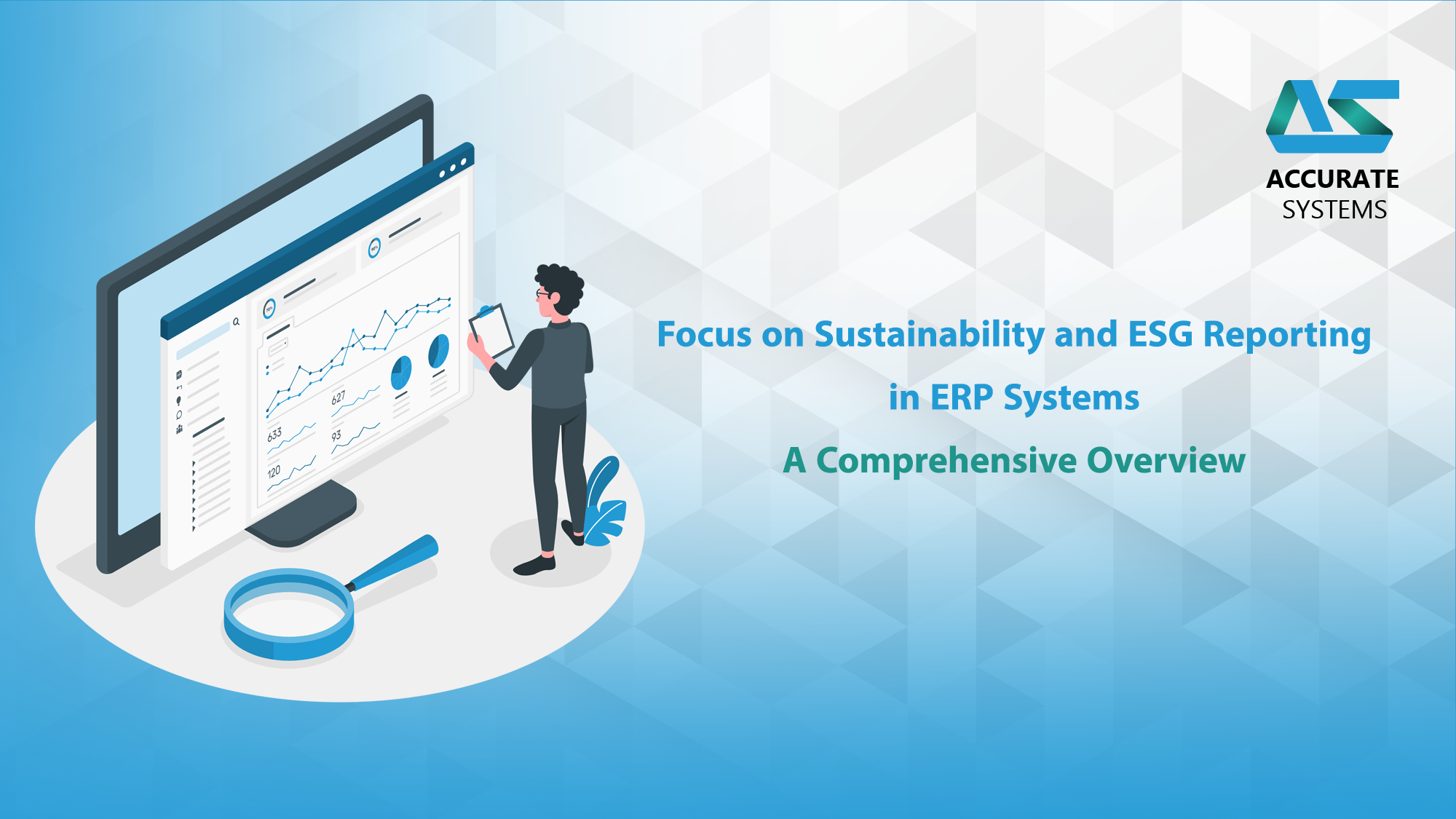As global awareness shifts towards environmental, social, and governance (ESG) priorities, businesses in Saudi Arabia and around the world are aligning their operations with sustainability goals. Enterprise Resource Planning (ERP) systems are at the forefront of this transformation, offering innovative features that help organizations monitor carbon footprints, optimize resource usage, and ensure compliance with ESG standards.
In this article, we explore how ERP systems support corporate responsibility and long-term business success while adhering to SEO-friendly guidelines for better online visibility.
Why ESG and Sustainability Matter
Environmental, social, and governance considerations are no longer optional. Regulatory requirements, investor expectations, and consumer preferences are driving businesses to integrate ESG principles into their strategies.
In Saudi Arabia, Vision 2030 has accelerated this shift by promoting sustainable economic development and reducing reliance on oil. Companies adopting ESG initiatives benefit from enhanced investor trust, improved brand reputation, and sustainable long-term value creation.
How ERP Systems Drive ESG Goals
Modern ERP systems are evolving to meet the growing demand for sustainability and ESG integration. Here are the key features enabling organizations to achieve their ESG goals:
1. Carbon Footprint Monitoring
ERP systems now include powerful tools to track and manage carbon emissions across operations:
- Calculate greenhouse gas (GHG) emissions from energy use, supply chain logistics, and production.
- Provide real-time dashboards for emissions monitoring.
- Support reporting frameworks like the Greenhouse Gas Protocol and ISO 14064.
2. Resource Optimization
Efficient resource management is essential for sustainability. ERP solutions enable:
- Real-time tracking of energy, water, and raw material usage to minimize waste.
- Predictive analytics to forecast resource needs, avoiding overproduction or inventory excess.
- Automation of workflows to improve energy efficiency.
3. Compliance with ESG Standards
Compliance with ESG regulations is critical to avoid penalties and maintain credibility. ERP systems help businesses:
- Automate ESG reporting aligned with standards like the Global Reporting Initiative (GRI) and Sustainability Accounting Standards Board (SASB).
- Maintain transparent audit trails of ESG-related activities.
- Receive timely alerts for regulatory updates.
4. Waste Management and Circular Economy
ERP platforms now support waste reduction and circular economy practices by:
- Tracking waste generation and disposal methods.
- Integrating recycling and reusability initiatives.
- Providing insights for designing sustainable, resource-efficient products.
5. Social Responsibility Metrics
ERP systems also address social governance by tracking:
- Workforce diversity and inclusion metrics.
- Ethical compliance of suppliers.
- Community impact through CSR initiatives.
Benefits of ESG-Integrated ERP Systems
Integrating ESG and sustainability features into ERP systems provides numerous advantages:
Enhanced Decision-Making
Real-time ESG data supports informed decisions, balancing profitability with sustainability.
Improved Stakeholder Engagement
Transparent ESG reporting builds trust with investors, customers, and regulators.
Cost Savings
Optimizing resource usage and reducing waste translates into significant cost reductions.
Regulatory Compliance
Automated compliance tools ensure adherence to local and global sustainability standards.
Competitive Advantage
Businesses showcasing ESG commitments attract eco-conscious consumers and partners.
ERP Systems and Vision 2030 in Saudi Arabia
Saudi Arabia’s Vision 2030 emphasizes sustainable development. ERP systems are instrumental in achieving this vision by helping businesses:
- Measure and reduce environmental impact.
- Optimize supply chains for local and sustainable sourcing.
- Align ESG reporting with national sustainability goals.
Overcoming Challenges
Despite their benefits, ESG-integrated ERP systems face challenges such as:
- High Implementation Costs: Advanced ERP features require substantial initial investments.
- Data Complexity: Collecting and analyzing ESG data across operations is intricate.
- Skill Gaps: Proper utilization of these systems demands skilled personnel.
Future Trends
Technological advancements in artificial intelligence, machine learning, and blockchain will further enhance ERP systems. Features like AI-powered analytics, automated compliance, and blockchain traceability are expected to simplify ESG integration.
Conclusion
Sustainability and ESG considerations are now essential in the modern business landscape. ERP systems empower organizations to achieve their sustainability goals by offering tools for carbon footprint tracking, resource optimization, and ESG compliance.
For businesses in Saudi Arabia, ESG-integrated ERP solutions are vital for aligning with Vision 2030, fostering a sustainable future, and maintaining competitiveness in a rapidly evolving market.


